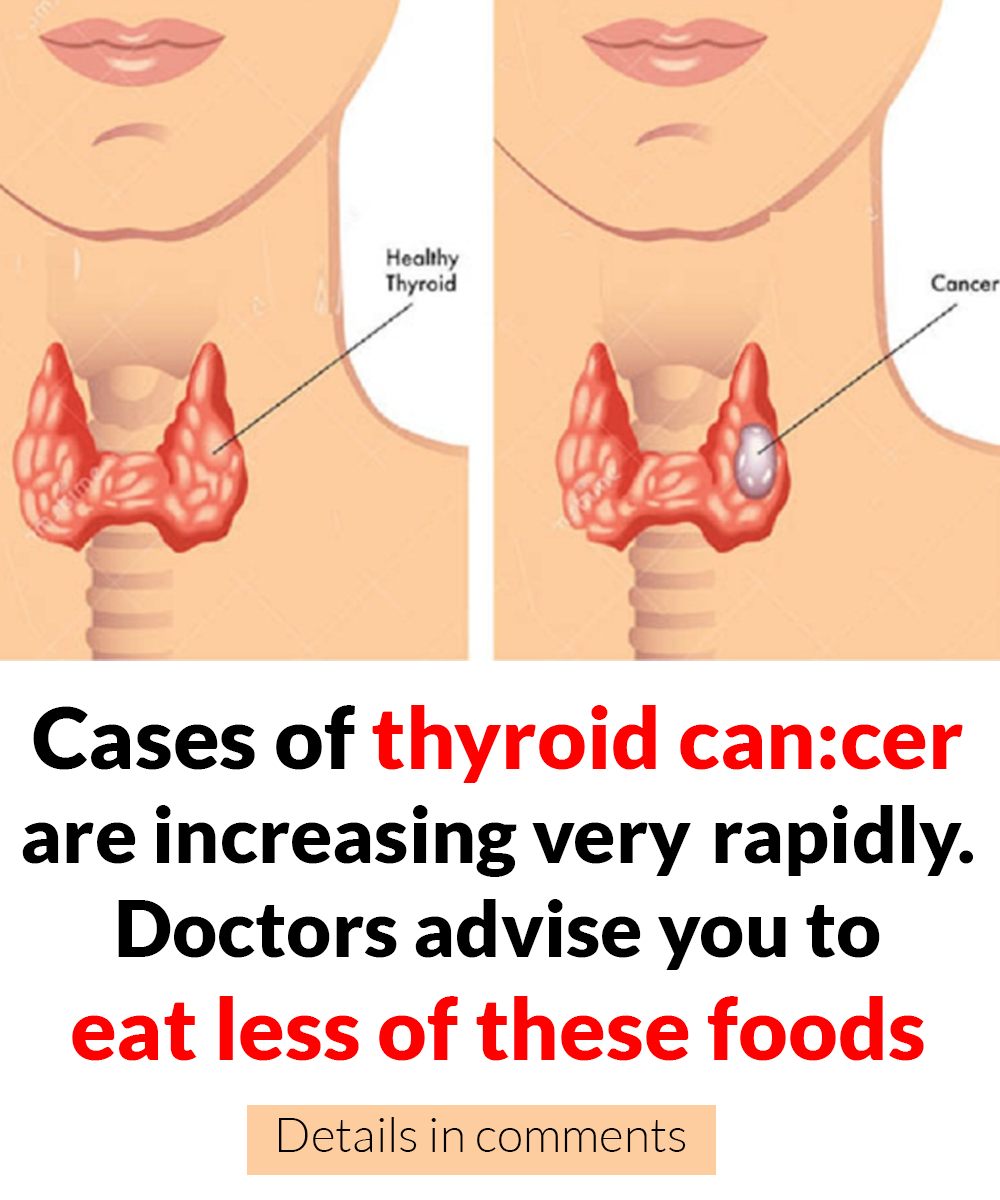Thyroid cancer cases are on the rise, and while scientists are still working to understand exactly why, there are a few known risk factors. These include radiation exposure, low iodine intake, obesity, genetic mutations, and a family history of thyroid disease. Other contributors include thyroiditis (inflammation of the thyroid), goiter (an enlarged thyroid), and radiation therapy to the head or neck—especially during childhood. Given these risks, doctors are emphasizing the importance of managing your diet if you’re at risk or already dealing with thyroid issues.

Let’s break down which foods you should be cutting back on and which ones can help support your thyroid health.
First off, cruciferous vegetables like kale, cabbage, and bok choy can interfere with iodine absorption because they contain goitrogens—compounds that block iodine from entering the thyroid. When eaten raw, these vegetables may increase the risk of developing a goiter or thyroid tumor. However, cooking these veggies helps break down the enzymes that cause problems, so eating them in moderation and in cooked form is generally okay.
Next, soy and its products—like tofu, soy milk, and edamame—are rich in isoflavones, which may reduce thyroid hormone production. While soy isn’t completely off-limits, it’s best to limit your intake, especially if you’re on thyroid hormone replacement therapy after surgery, as soy can interfere with how well the medication works.
Processed foods are another red flag. They’re usually packed with additives, unhealthy fats, and sodium, but offer little nutritional value. All of these can mess with your thyroid’s ability to function properly. If you’ve had thyroid surgery or are undergoing treatment, fresh, nutrient-dense foods are your best bet for recovery and hormonal balance.
You should also be mindful of caffeine. Drinking coffee or eating foods with caffeine within an hour of taking thyroid medication can affect how well the drug is absorbed. Caffeine can also cause jitters, heart palpitations, and breathlessness—symptoms you definitely want to avoid if you’re already dealing with thyroid issues. So, go easy on the lattes and energy drinks.
Then there’s alcohol. If there’s one thing doctors agree on, it’s that alcohol and thyroid health don’t mix. Alcohol interferes with the production of thyroid hormones and damages the thyroid gland itself. It also adds unnecessary toxins to your system and harms other organs. For anyone with thyroid disease or undergoing treatment, avoiding alcohol is a must.
Iodine-rich foods like seaweed, shellfish, and iodized salt can be tricky. While iodine is necessary for thyroid function, both too much and too little can cause problems. If you’re receiving radioactive iodine treatment, you’ll need to temporarily avoid iodine-rich foods to ensure the treatment works effectively. Even afterward, moderation is key.
For those recovering from thyroid surgery, it’s best to stay away from hard or dry foods—things like nuts, dried squid, jerky, and grilled meat. These can be hard to swallow and may irritate your throat or the surgical site, making recovery more difficult.
Another ingredient to watch is gluten. Found in wheat, barley, and some processed foods, gluten can irritate the small intestine and interfere with thyroid hormone absorption. Though you don’t have to go fully gluten-free, limiting your intake—especially if you have an autoimmune thyroid condition—is a smart move.
Spicy and sour foods should also be on your “go easy” list, especially after surgery. Chili, black pepper, and vinegar-based seasonings can irritate your digestive tract and throat lining, making recovery slower and more uncomfortable.
Now, let’s talk about what you should eat to give your thyroid some love.
Berries—especially black raspberries—are packed with antioxidants, fiber, and vitamins. They help combat oxidative stress, which is often linked to thyroid dysfunction. Apples are another great pick, thanks to their detoxifying properties and quercetin, a compound that reduces inflammation and supports thyroid health.
Brazil nuts are a selenium powerhouse. This trace element is vital for producing thyroid hormones and protecting the gland from oxidative stress. Just a few nuts a day can meet your selenium needs.
Avocados are full of healthy fats, magnesium, and antioxidants, which help regulate hormones and maintain a healthy weight—something many people with thyroid problems struggle with.
Eggs are rich in vitamin D, iodine, and selenium, all essential for proper thyroid function. The protein in eggs also helps preserve muscle mass, which can be affected by thyroid disease.
Yogurt, especially Greek or low-fat plain varieties, is another good source of iodine and probiotics. A healthy gut improves nutrient absorption, which in turn benefits thyroid health.
Lastly, pumpkin seeds offer zinc, magnesium, and antioxidants—nutrients that play a key role in thyroid hormone synthesis. A small handful each day can help your thyroid operate at its best.
By being mindful of what you eat—and what you avoid—you can support your thyroid function and overall health, especially if you’re at risk or undergoing treatment for thyroid cancer.





